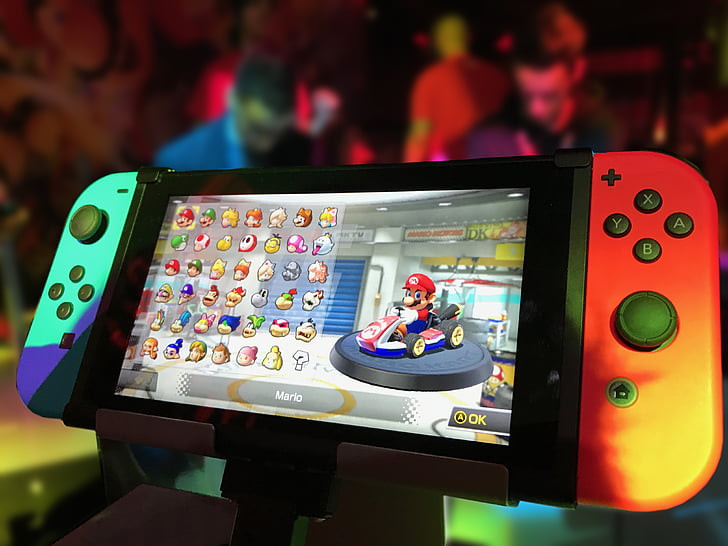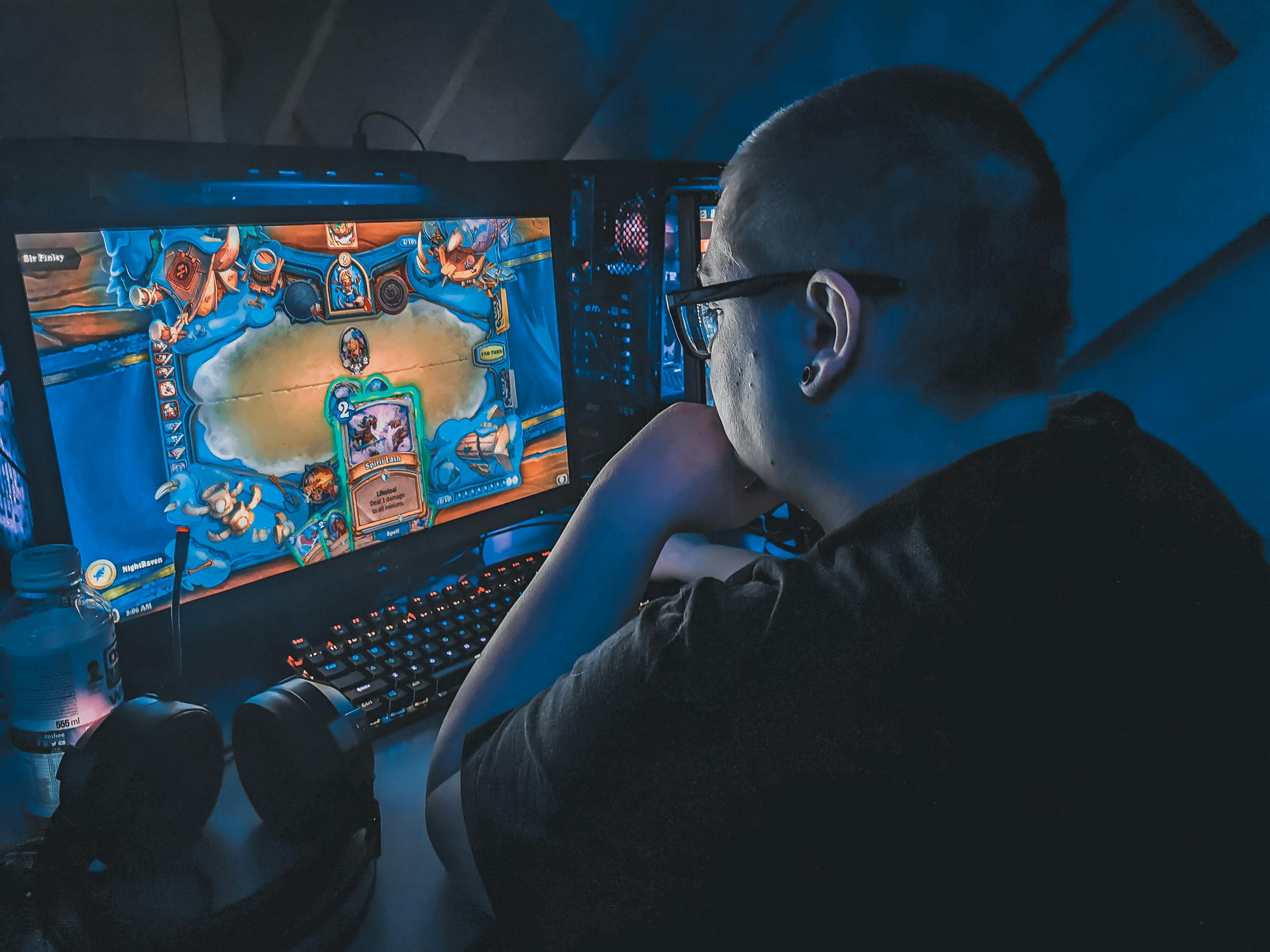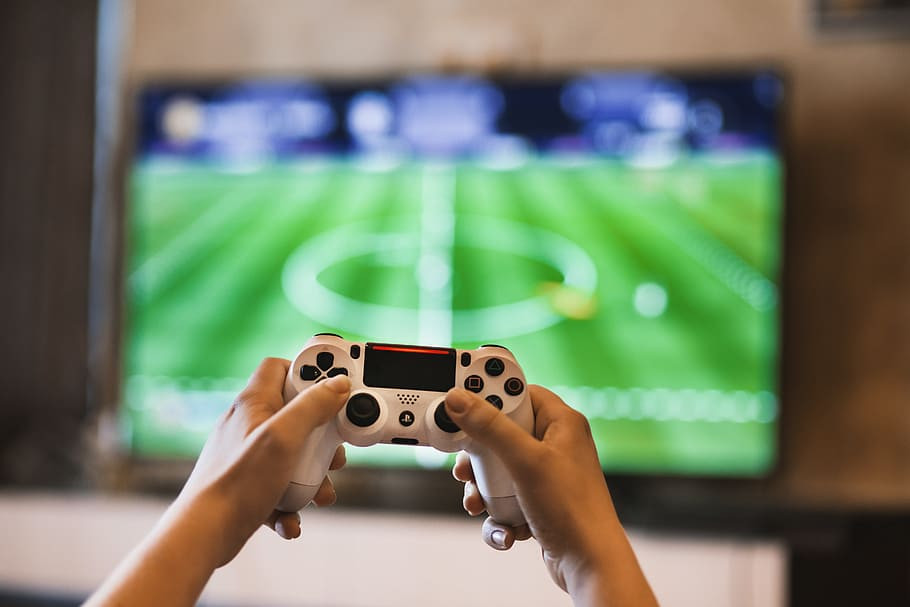Unlocking the Power of Play: How Video Games Can Enhance Your Life
- May 12, 2023
- 313

Contrary to popular belief, video games are not merely a mindless form of entertainment. In fact, they can actually improve a range of cognitive abilities. One of the most significant benefits of gaming is the enhancement of problem-solving and critical thinking abilities.
Boost Cognitive Abilities with Video Games
Many video games, especially those in the strategy and puzzle genres, require players to think on their feet and make quick decisions based on the information available to them. This constant mental exercise can help sharpen one's cognitive skills, ultimately leading to better decision-making and problem-solving in real life.
In addition to improving problem-solving skills, video games also have the potential to boost memory and concentration. Many games require players to memorize complex patterns, sequences, and maps – all of which can contribute to better memory retention. Furthermore, video games often demand a high level of concentration and focus, as players must pay attention to a variety of factors such as objectives, character stats, and enemy movements. This heightened level of focus can translate into an improved ability to concentrate on tasks in daily life.

Video games can also enhance hand-eye coordination and fine motor skills. Gamers must quickly process visual information and respond with precise movements, which can lead to improved coordination over time. This benefit is particularly evident in action and sports games, where players need to react quickly to changing game situations. Researchers have even found that surgeons who play video games demonstrate better hand-eye coordination and precision in their surgical procedures.
Video Games as a Tool for Emotional Well-Being
Playing video games can also have significant benefits for one's emotional well-being. For many people, gaming serves as a form of stress relief, providing a temporary escape from the pressures of daily life. Immersing oneself in a virtual world can help to reduce anxiety and promote relaxation, as the focus shifts from real-world worries to in-game challenges and achievements.
Moreover, studies have shown that certain video games, particularly those with calming and meditative qualities, can be effective in reducing symptoms of depression and anxiety.
Another emotional benefit of gaming is the opportunity for social connection. Many video games, especially online multiplayer titles, enable players to interact with others from around the world, forming friendships and fostering a sense of community.
These social interactions can help to alleviate feelings of loneliness and provide a sense of belonging, which is crucial to maintaining emotional well-being. Furthermore, cooperative gameplay can promote teamwork and communication skills, as players work together to achieve common goals.
Developing Life Skills Through Video Games
Video games can also serve as a valuable tool for teaching and developing essential life skills. For example, many games incorporate elements of resource management, requiring players to balance limited resources such as time, money, or supplies. This can help to develop budgeting and planning skills that are applicable to real-life scenarios.

Gaming can also teach perseverance and resilience, as players often face challenging obstacles and setbacks. Overcoming these difficulties in a virtual environment can help to instill a sense of determination and persistence that translates into real-world situations. Additionally, video games often reward players for taking calculated risks and trying new strategies, which can encourage a willingness to experiment and adapt to change – a valuable skill in today's rapidly evolving world.
Lastly, video games can help to foster creativity and imagination. Many games encourage players to think outside the box and explore novel solutions to problems, which can lead to the development of innovative thinking skills. Furthermore, games with customizable elements or sandbox-style gameplay can provide a platform for artistic expression and creative exploration, allowing players to design unique characters, worlds, and storylines.
Enhancing Academic Performance with Video Games
Contrary to the common assumption that video games are a distraction from academic pursuits, research has shown that gaming can actually improve academic performance in certain areas. Studies have found that video games can improve reading comprehension, particularly in struggling readers, as they require players to process and understand complex in-game texts and instructions. Additionally, educational games designed to teach specific subjects, such as math, science, or history, can be a fun and engaging way for students to reinforce their learning and develop a deeper understanding of the material.
Furthermore, the problem-solving and critical thinking skills developed through gaming can also contribute to better academic performance. Students who are adept at analyzing situations, generating solutions, and making decisions in a virtual environment may be better equipped to tackle complex problems and challenges in their coursework. As a result, the cognitive benefits of gaming can potentially lead to improved grades and overall academic success.
Promoting Physical Health Through Active Gaming
While traditional video games tend to be sedentary activities, the emergence of active gaming has introduced a new way for players to enjoy their favorite hobby while also benefiting their physical health. Active games, or "exergames," require players to move their bodies in order to control the on-screen action. Examples of this genre include popular titles such as Dance Dance Revolution, Wii Fit, and Just Dance.
Active gaming can provide a fun and engaging alternative to traditional forms of exercise, helping to increase physical activity levels and improve overall fitness. Studies have shown that exergames can lead to significant improvements in cardiovascular health, balance, and flexibility, as well as promoting weight loss and muscle strength. Furthermore, these games can help develop gross motor skills and coordination, particularly in children.

In addition to the physical benefits, active gaming can also contribute to improved mental health. Engaging in regular physical activity has been shown to reduce stress, anxiety, and depression, as well as promote better sleep and overall mood. By combining the emotional benefits of gaming with the physical benefits of exercise, active games can provide a well-rounded approach to promoting both physical and mental well-being.
Conclusion
Ultimately, the benefits of gaming extend far beyond mere entertainment. From cognitive enhancement to emotional well-being, life skills development, academic improvement, and physical health, video games have the potential to enrich various aspects of our lives. By recognizing and embracing the positive aspects of gaming, we can unlock the power of play to improve not only our leisure time but also our overall quality of life.
